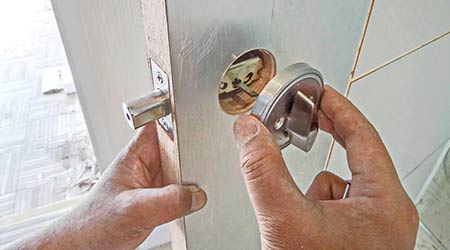Doors: New Era, New Requirements
Comprehensive inspection, testing and maintenance helps managers enhance the safety of building occupants and visitors
The rush to provide better safety, especially in the nation’s K-12 schools, has led to controversial changes in codes, among other things. For maintenance and engineering managers and their staffs, the rapidly evolving situation means they must pay close attention to changes in codes governing door hardware.
Consider the case of NFPA 10, which now requires two separate locking actions instead of one to unlock or lock an egress door. Dissenting authorities point out that it is three times more likely that a fire or other emergency will occur than a shooting. If it becomes more difficult to egress for these more common events, unintended negative consequences may result.
The right answer in this situation is twofold.
First, the final decision about the code is up to the local authority having jurisdiction (AHJ). Managers and technicians should follow the type of locks and other door and door hardware specifications that the AHJ specifies in the code.
Second, practice, practice, practice. Certain motor skills are necessary no matter what hardware solution is in place. If the first time a responsible person must use these skills is in an emergency, a lot of fumbling occurs, and precious seconds are lost. Familiarity with this hardware is essential, to the point where little or no thought is required to use the exit in an emergency.
Likewise, the same familiarity is needed to lock an egress door in the case of a lockdown. Experts advise, “Lock, don’t block.” If the occupants need to get out of a blocked egress, the rush to get out of the door can deter removing the block and, as a result, trap everyone inside.
— Thomas A. Westerkamp
Related Topics:















